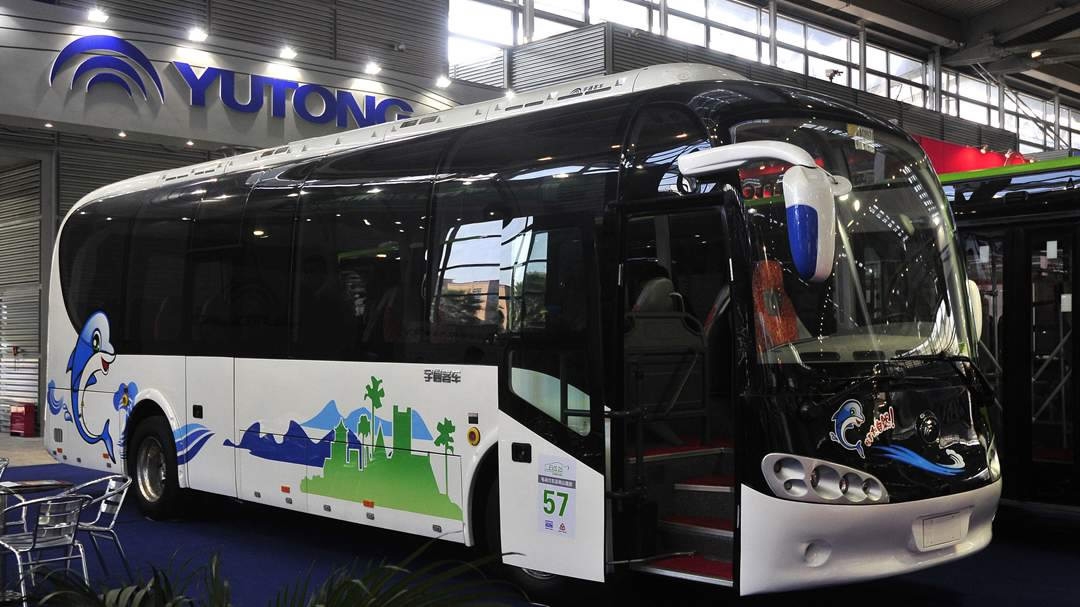
Business
18:36, 30-Nov-2017
China-made electric bus a milestone in Cuban public transit
CGTN

An electric bus manufactured by a Chinese company has been put into service on the streets of Havana, marking a milestone in Cuba's history of public transportation.
The electric bus is the very first in Cuba. It was brought over by China's Yutong to reduce Cuba's dependence on fossil fuels, which is part of a national plan to mitigate the effects of climate change.
Starting Monday, it went into service covering one of the city's main routes, the 22.5-km Route 18, taking passengers through the capital's populous areas like Cerro, downtown Havana and Old Havana.
The wide-bodied 12-meter-long vehicle offers a comfortable ride with 36 seats. In Cuba's sometimes steamy tropical weather, it is the only urban bus in Havana with air conditioning.
"It's really a magnificent bus. It has air conditioning and we have to take care of it so that it lasts. I think it's a good initiative," first-time passenger Leonardo Wong told Xinhua.
The bus can move at 70 km/h, and has a suspension system and tires adapted to the capital's roads, some of which are in poor condition.
"It's electric, so there will be less smoke and pollution in the city. So it's perfect that it has entered into service and hopefully there will be more like it in the future," said Luis Paredes, a regular commuter of the route.
The vehicle has a charging station, also supplied by the bus maker. The charging station's 380-volt generator was specially adapted in Cuba by Chinese experts.
According to Jorge Luis Leon, technical director of the Havana transportation company, the fully-charged batteries have an eight-year guarantee and allow the bus to travel between 250 and 300 km, enough to complete up to 11 round trips on the current route.
Over the next nine months, his company and the Cuban Transportation Management Research Center will assess the vehicle's technical performance and cost savings to determine the feasibility of its use in other bus routes in Havana.
"In the future ...it could lead to the purchase of more buses of this type for the country," Leon said.
Fang Mingliang, Yutong's representative in Cuba, is optimistic that once the feasibility test is concluded, more electric buses will join transit fleets across Cuba.
"We believe that with the gradual economic development of Cuba and according to the demand of the Cuban people, in the future they can buy more electric or hybrid buses and this will help to save fossil fuels and contribute to the environment in this country," Fang said.
Source(s): Xinhua News Agency

SITEMAP
Copyright © 2018 CGTN. Beijing ICP prepared NO.16065310-3
Copyright © 2018 CGTN. Beijing ICP prepared NO.16065310-3